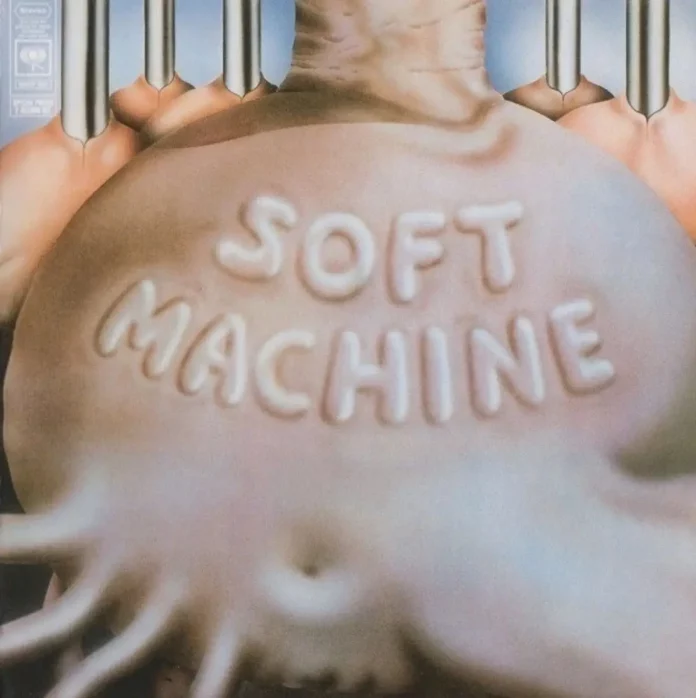It’s difficult to keep up with the personnel changes in Soft Machine. At the time this double set was recorded, Jenkins and Marshall had just replaced Elton Dean and Phil Howard, whose thankfully short spell was initiated by the final withdrawal of Robert Wyatt, and as I write this belated review, Hopper seems certain to depart in the near future. So it goes.
Soft Machine has always held a musically isolated position, disowned by jazzers and rocksters alike; it’s all rather petty. ‘Six’ is as unlikely to dissuade this silliness as it is certain to strengthen the convictions of the group’s hard-core devotees.
The live album was recorded during the new line-up’s first tour last autumn, and as such is an accurate account of their current stage presence. Jenkins’ compositions are as prominent as those of Ratledge, and readily assume the Softs’ double-edged tradition of academic sophistication and uncompromising sensuality: tracks like E.P.V. contain all the emotional essence of, say, the link passage in Ratledge’s Out-Bloody-Rageous from ‘Third’, while others possess the obsessive rhythmic complexities which built the band’s reputation. His baritone and oboe add a fresh textural quality, but his reed-playing doesn’t pretend to replace Dean’s lyrical fluency, confining itself largely to limited theme exposition – all of which focuses attention on his excellent role as additional keyboard player, which is just as well; Ratledge’s organ solos are still relentlessly similar. Hopper’s muscular, concentrated bass and Marshall’s customary dynamic funkiness provide a faultless driving force.
1983 is Hopper’s sole compositional contribution, and one in marked contrast to his past writing for the group: icy eeriness of tape sound effects and a gloomy unison of bass and piano hints at obvious compositional differences of opinion, and casts a foreboding shadow over his participation in Soft Machine’s future. Stand by for ‘1984’ – Hopper’s going in.
Discography
Fanfare; All White; Between; Riff; 37½ (19 min) – Gesolreut; E.P.V.; Lefty; Stumble; 5 from 13; Riff II (22 min) – The Soft Weed Factor; Stanley Stamp’s Gibbon Album (18 min) – Chloe And The Pirates; 1983 (18 min)
Hugh Hopper (bs): Karl Jenkins (oboe / bari / sop / el-pno / pno / celeste): John Marshall (dm / perc); Mike Ratledge (ogn / el-pno / pno / celeste). Live and studio, 1972.
(CBS 68214 Double Album £2.83)
















